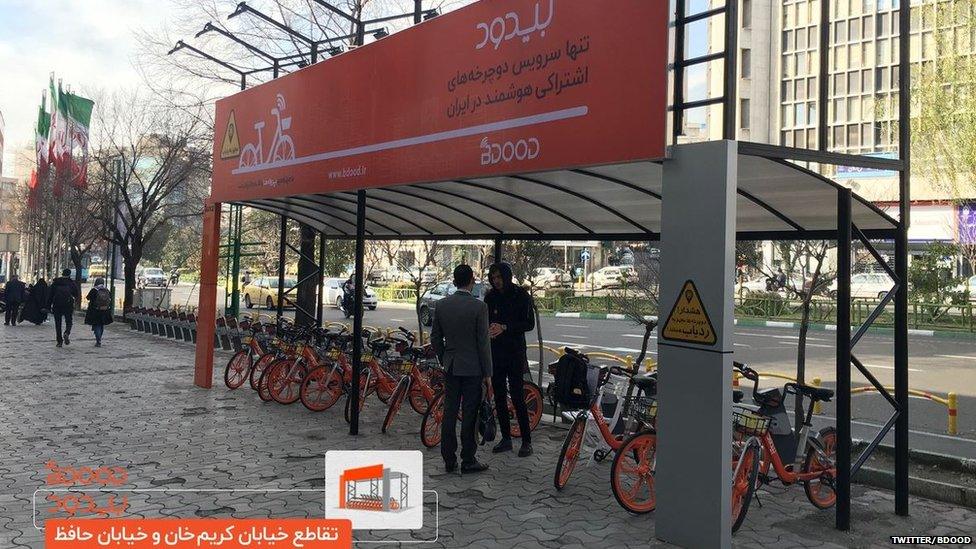Iranian app bashed for refusing service to women
- Published

Bdood bike stations can be found all over Tehran
Tehran-based bike-sharing company Bdood has come under fire after some customers noticed that women have been unable to register on the app.
One user alerted others on Twitter about the development, writing that the company had been "banned" from offering its services to women., external Another person posted a screengrab, external of an error message following an attempt by a female user to register on Bdood's app.
The reports have prompted outrage. "If the story is true, I'm never going to use Bdood again,", external one person declared. Another - a male user - wrote that men had no reason to use the app, external as long as women were banned.
A person who identifies themselves as a journalist explained that the company "had come under pressure from the police and prosecutor-general's office", external to stop providing services to women or risk closure. The company has not commented.
Bdood - a trendy spelling of "Bidood" which means "fumeless" in Persian - launched in 2017. It advertises itself as "the only smart bike-sharing company" in Iran, with dozens of stations across the Iranian capital.
No official ban
There are no laws banning women from riding bicycles in public, but influential hard-line clerics in Iran have ruled that it is "provocative" and therefore against Sharia law.
Back in May, the prosecutor-general of Isfahan city ordered the police to issue warnings to women riding bikes in public and seize their ID cards.
Ali Esfahani told the official IRNA news agency at the time that he had issued the order because local clerics "and families of martyrs" had complained. He added that it is also for the safety of women who become the subject of harassment.
You may also be interested in:
There are other examples of Iranian authorities trying to enforce non-existent laws. Women are not allowed in football stadiums to watch men's games even though there is no official ban. A number of women who disguised themselves as men in order to gain entry were arrested recently and released later on bail.
And a female singer was summoned to appear in court after performing solo in public recently, even though the country doesn't have a specific law barring public solo performances by women.
These sanctions tend to provoke criticism on social media where the young generation in particular has shown to be increasingly aware and vocal about women's rights.
Next story: 'Nightmare' statue looms over New Zealand city
Use #NewsfromElsewhere to stay up-to-date with our reports via Twitter, external.